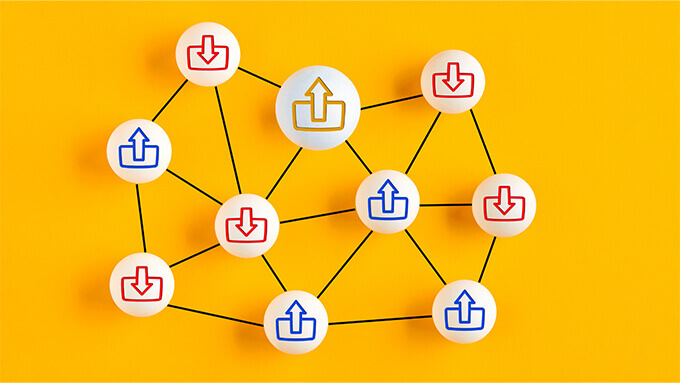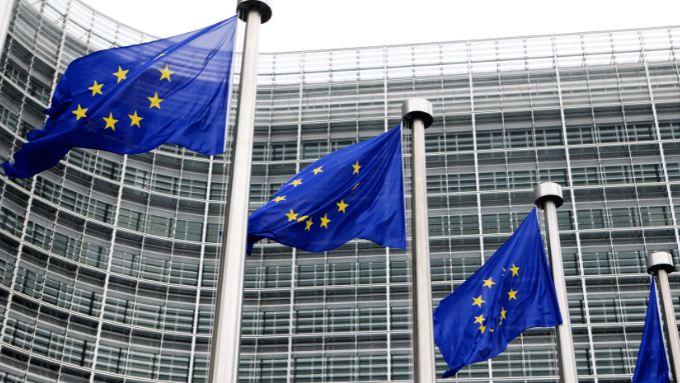A New Era: The Personal Information Protection Law of the People’s Republic of China
Introduction
The Personal Information Protection Law of the People’s Republic of China (“PIPL”) passed at the 30th meeting of the Standing Committee of the 13th National People’s Congress on 20 August 2021 and entered into force on 1 November 2021 as per Article 74. Although the Cybersecurity Law and Data Security Law have had an important role in cybersecurity and data protection in China, the PIPL aims to provide more comprehensive protection for personal information and establishes core principles on handling information.
The PIPL anticipates a similar structure as the EU General Data Protection Regulation (“GDPR”) which also regulates data protection and privacy. Through it, China has established a legal framework that will have an impact on the companies operating both inside and outside of China. Due to the extra-territorial effect of the law, Chinese companies operating in China, as well as foreign companies, will have to reconsider their data processing activities and their compliance practices. This Newsletter will focus on material provisions established under the PIPL and what to expect from the new era of data security.
Introduction to the PIPL
The PIPL consists of eight chapters, covering general provisions of personal information, rules of information handling, cross-border information handling, duties of handlers, duties and responsibilities of relevant authorities, and legal liability. The PIPL, similar to the GDPR, sets forth main principles of data protection and aims to provide protection for individuals, set forth rules of processing information and, lastly, establish the rational use of information. Therefore, companies who process data in compliance with the GDPR can presume that their data processing activities will be in line with the PIPL to a certain extent. Despite the PIPL not being as detailed as the GDPR, its extra-territorial effect, strict data localization approach and constraints on data exportation stand out.
In a manner similar to the GDPR, as well as to the Turkish Law on Protection of Personal Data numbered 6698 (“LPPD”), the PIPL requires data handlers to have a legal basis for processing data, such as consent of the individuals. However, the PIPL does not include “legitimate interests” pursued by the data handlers as a legal basis to process data. Like the GDPR and the LPPD, the PIPL also envisages notification duty for data breaches, as well as obligations for risk assessment and data security. Lastly, the PIPL also assigns similar rights to individuals as the GDPR and the LPPD do.
Scope of Application
Pursuant to Article 3, the PIPL applies to the activities of handling personal information of natural persons within the borders of China. The PIPL applies when one of the circumstances below is present in information handling activities taking place outside of China, of personal information of natural persons within China:
- In case the purpose is to provide products or services to natural persons inside China;
- In case the purpose is to analyze or assess activities of natural persons inside China;
- Other circumstances provided in laws or administrative regulations.[1]
As noted above, Article 3 of the PIPL extends its scope of application outside of China. Therefore, companies handling personal information of individuals in China will be subjected to the PIPL regardless of their presence there. In this regard, Turkish companies may be required to operate in compliance with the PIPL in case handling activities concern individuals in China.
Personal Information, Sensitive Personal Information, and Handling under the PIPL
The PIPL defines personal information under Article 4 as “all kinds of information, recorded by electronic or other means, related to identified or identifiable natural persons, not including information after anonymization handling.” Sensitive personal information, on the other hand, is defined under Article 28 as “personal information that, once leaked or illegally used, may easily cause harm to the dignity of natural persons or grave harm to personal or property security.” Additionally, processing of personal information is defined under Article 4 as “personal information collection, storage, use, processing, transmission, provision, disclosure, deletion, etc.”.[2]
Rules of Handling Personal Information
The PIPL also consists of detailed provisions regarding consent and notification. The grounds of data handling are established under Article 13. Accordingly, the handlers may only handle personal information if they meet one of the following conditions:
- “Obtaining individuals’ consent;
- Where necessary to conclude or fulfill a contract in which the individual is an interested party, or where necessary to conduct human resources management according to lawfully formulated labor rules and structures and lawfully concluded collective contracts;
- Where necessary to fulfill statutory duties and responsibilities or statutory obligations;
- Where necessary to respond to sudden public health incidents or protect natural persons’ lives and health, or the security of their property, under emergency conditions;
- Handling personal information within a reasonable scope to implement news reporting, public opinion supervision, and other such activities for the public interest;
- When handling personal information disclosed by persons themselves or otherwise already lawfully disclosed, within a reasonable scope in accordance with the provisions of the PIPL;
- Other circumstances provided in laws and administrative regulations.[3]
Pursuant to Article 14, where handling personal information is based on the consent given, such consent must be given voluntarily with full knowledge and explicit statement. Article 15, on the other hand, suggests that individuals may rescind their consent and handlers are also required to offer individuals convenient ways to withdraw their consent. The PIPL also establishes the duty to inform individuals before handling personal information under Article 17 as with the GDPR and the LPPD. Moreover, personal information handlers may not refuse to provide products or service in case individuals do not consent. Personal information handlers may not disclose the personal information they handle; if they do, they have to obtain separate consent. If they handle sensitive information, separate consent of the individual should be obtained under Article 29.
The PIPL also establishes important provisions for notification. Personal information handlers are obliged to notify individuals when they provide other handlers with the personal information under Article 23. Additionally, where personal information handlers provide personal information outside of the borders of China, they shall notify the individual in accordance with Article 39 and obtain individuals’ separate consent.
The PIPL also foresees rules for personal information handlers who engage with automated decision making, which is defined as using automatic analyses or assessment of personal behavior, habits, interests, hobbies, financial, health or other status through computer programs to make decisions. Accordingly, transparency, fairness and justice are key principles when engaging with automated decision making; unreasonably different treatment of individuals in trading conditions is prohibited.
Duties of Personal Information Handlers
Personal information handlers are obliged to adopt various measures established under Article 51. These include considering criteria such as the purpose for personal information handling, the methods of handling, personal information categories, and influence of these activities on the individuals’ rights and interests. They also have the obligation to notify relevant parties in case of any personal information leak, distortion, or loss under Article 57.
Pursuant to Article 52, personal information handlers that handle personal information exceeding a certain threshold shall appoint personal information protection officers. Foreign companies are also responsible for establishing an entity or appointing a representative in China to be held responsible for information they handle under Article 53.
Article 58 establishes certain obligations for important internet platforms having a considerable number of users and operating with complex business structures. Operating in accordance with the principles of openness, fairness, and justice is one of them.
Rules on Cross-Border Transfer
Personal information handlers seeking to provide information outside the borders of China have to fulfill the requirements established under Article 38. These include passing a security assessment, undergoing personal information protection certification, concluding a contract with the foreign receiving side and other conditions provided under laws or administrative regulations or by the State cybersecurity and informatization department.
Article 40 regulates critical information infrastructure operators and personal information handlers dealing handling with large amounts of personal information. Under this article, personal information handlers handling quantities to be determined by the State cybersecurity and informatization department will have to store personal information collected and produced within the borders of China domestically. In another saying, Article 40 is important for data localization and the personal information handlers exceeding certain quantities of information are required to store information only within China. Article 40 also requires that personal information handlers who need to provide information abroad need to pass a security assessment.
Conclusion
Cross-border transfer of personal information is likely to be a hot topic for many companies. Many international companies will have to consider the requirements for cross-border transfers, and obligations for obtaining consents and notification should also be closely monitored. The PIPL is of special importance due to its extra-territorial effect and foreign companies have to pay attention and assess their risks. It is highly suggested for companies to determine whether their activities are within the scope of the PIPL. Establishing categories of personal information handled and thresholds met are also worth study, since additional duties may arise for personal information handlers subjected to the PIPL. In case personal information reaches a certain quantity, cross-border transfer may not be possible; handlers may be required to store personal information collected and produced within the borders of China.
- Creemers, Rogier/ Webster, Graham; “Translation: Personal Information Protection Law of the People’s Republic of China – Effective Nov. 1, 2021”, the Digichina Project, Stanford University, https://digichina.stanford.edu/work/translation-personal-information-protection-law-of-the-peoples-republic-of-china-effective-nov-1-2021/(Date of Access: 23.02.2022). For English translation of the PIPL, please refer.
- Creemers/Webster. For English translation of the PIPL, please refer.
- Creemers/Webster. For English translation of the PIPL, please refer.
All rights of this article are reserved. This article may not be used, reproduced, copied, published, distributed, or otherwise disseminated without quotation or Erdem & Erdem Law Firm's written consent. Any content created without citing the resource or Erdem & Erdem Law Firm’s written consent is regularly tracked, and legal action will be taken in case of violation.




















